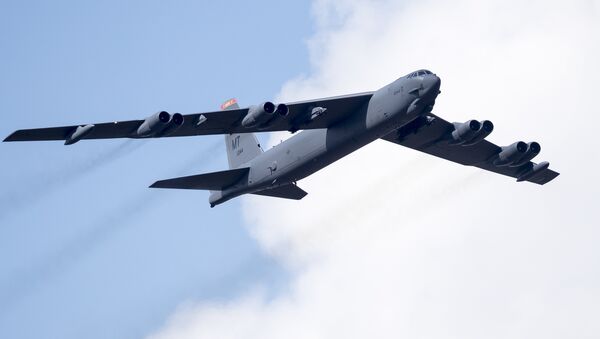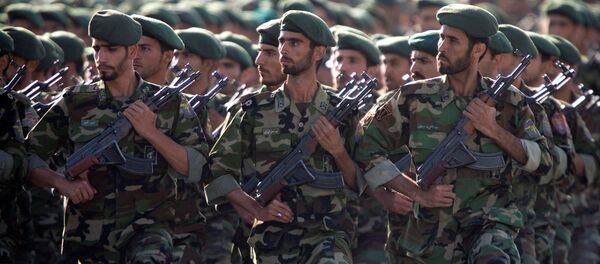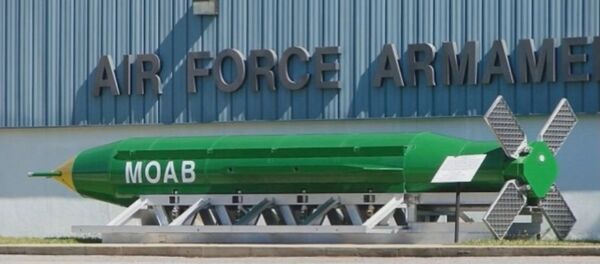The bomb made waves last April when a US military plane dropped a GBU-43/B MOAB on an allegedly Daesh-run terrorist camp in Afghanistan. The bomb is regarded as the most powerful non-nuclear bomb in the US weapons arsenal. April 13, 2017, marked the first employment of the bomb in combat.
The Air Force is seeking information from industry regarding "sources that may possess the expertise, capabilities and experience to meet the qualification requirement" to deploy the bombs onto the B-52, one of the oldest pieces of military equipment still used by the US, according to a Request For Information released June 21.
When the weapon was dropped in 2017, air crews simply released the bomb from a cradle within a C-130 cargo plane, letting gravity and Global Positioning System-satellite guidance do the rest of the work.
The Stratofortress planes have "limitations" when it comes to carrying heavy weapons beneath its wings, according to the RFI, which require modifications to carry munitions heavier than 5,000 pounds. B-52s typically carry most of their weapons in an internal weapons bay, but the bay doors are only 28 feet long and the MOAB is 30 feet long.
"When [the current external weapons pylon] was introduced, there wasn't a requirement nor did anyone foresee a need to carry weapons heavier than 5,000 lb," the document noted.
The new external weapons pylon will need to carry "multiple weapons in the 5,000 to 20,000 lb weight class," the military procurement document says. Each MOAB clocks in right around 20,000 pounds.
As reported by Sputnik News, in the realm of non-nuclear weapons, Russia's "Father of All Bombs," a thermobaric explosive, has a power of 88,000 pounds of TNT, roughly four times the destructive capability of MOAB. MOAB is also a thermobaric weapon, or fuel air explosive, which uses dispersed fuel to create a volatile air mixture that generates a colossal percussive air blast upon detonation.
B-52s can also carry nuclear weapons, which, ironically enough, are much smaller than the MOAB yet thousands of times more powerful. The B53 thermonuclear bomb, which the B-52 could carry two of, only weighed around 8,850 lbs each, according to the Nuclear Weapons Databook.



